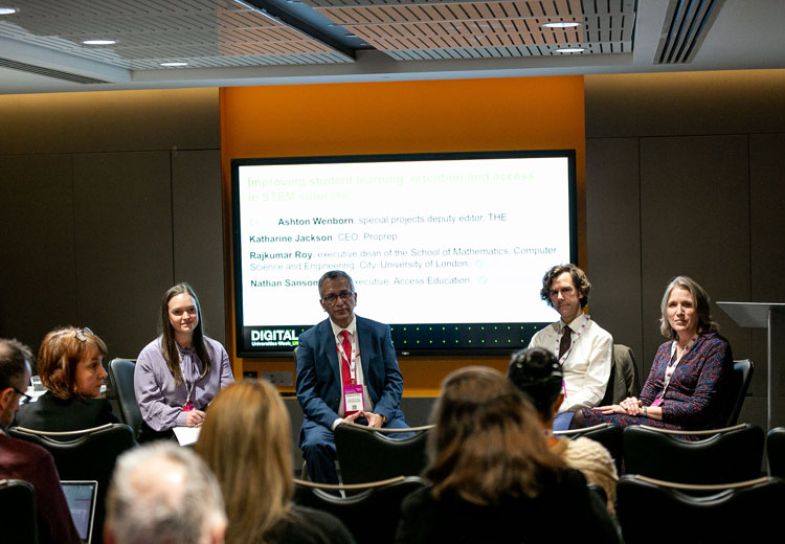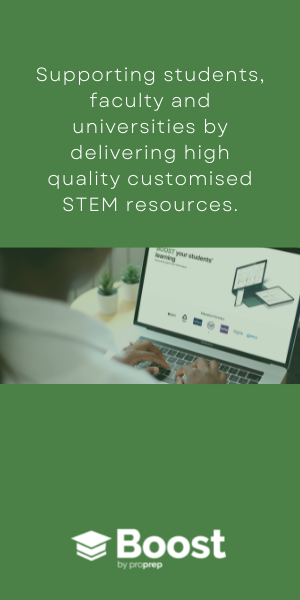
Pastoral care and digitally supported, scaffolded teaching can address skills shortages and boost student retention
The first year of undergraduate study in STEM subjects can be a challenging experience. Making the transition to independent learning can be a culture shock, and often students lack the core skills to ease this transition. The challenge facing higher education is twofold; to support STEM students with pastoral care and to tackle foundational skills gaps head-on.
Speaking at THE Digital Universities Week 2022, Katharine Jackson, CEO of Proprep – an online learning provider that helps STEM students develop core skills, which launched its university facing platform, Boost by Proprep, at the conference – stressed the importance of academic confidence.
“People don’t always have the confidence to visualise themselves [in higher education], and to visualise them succeeding in a room with others,” Jackson said. “There is something we can do on the content side to help understand the skills, particularly in mathematics, that they need to succeed.”
Rajkumar Roy, dean of the School of Mathematics, Computer Science and Engineering at City, University of London, is an advocate of this scaffolded teaching model. His institution has launched a number of programmes to bolster core academic skills, particularly to support students from underprivileged backgrounds, for whom the transition to university can be more difficult.
“We have launched scaffolded teaching for mathematics,” Roy said. “This year, we are going to launch physics for STEM subjects and study skills. You would probably be surprised to hear that a lot of our students don’t have the basic study skills and discipline, and do not understand how to take notes properly. And bringing all of these things together is the scaffolded teaching we want to build.”
City launched its STEM Digital Academy to teach digital learning skills alongside STEM subjects and to expand the institution’s options for online teaching and learning. The university has also been considering a summer school programme to address skills shortages among school-leavers.
Nathan Samson, CEO of The Access Project, said that the first year was crucial when supporting students. A non-profit organisation, The Access Project helps young people from disadvantaged backgrounds participate in higher education through mentoring and support initiatives that teach life skills such as budgeting and logistics.
“The really important thing that supports the transition into university is the sense of belonging,” Samson said. “That seems to be one of the really crucial things which gives students a sense that they are in the place where they are meant to be, and that is particularly an issue for students from a disadvantaged background.”
The panel:
- Katharine Jackson, CEO, Proprep
- Nathan Samson, CEO, The Access Project
- Rajkumar Roy, dean of the School of Mathematics, Computer Science and Engineering, City, University of London
- Ashton Wenborn, special projects deputy editor, Times Higher Eduction (chair)
Find out more about Proprep.

